
Terbiza 250mg Tablet
Manufacturer
Grace Drugs & Pharmaceuticals
Salt Composition
Terbinafine (250mg)
Key Information
Short Description
Terbiza 250mg Tablet is an antifungal medication used to treat a wide range of fungal infections of the skin and nails, including ringworm.
Dosage Form
Tablet
Introduction
Terbiza 250mg Tablet belongs to a group of medicines called antifungals. It is used to treat a wide range of fungal infections of the skin and nails, including ringworm. It works by killing the fungi that cause the infection.
Directions for Use
Take this medicine in the dose and duration as advised by your doctor. Swallow it as a whole. Do not chew, crush or break it. Terbiza 250mg Tablet may be taken with or without food, but it is better to take it at a fixed time. Avoid Terbiza 250mg Tablet with caffeine and chocolate as well as food containing caffeine and chocolate such as tea leaves, cocoa beans.
How it works
Terbiza 250mg Tablet is an antifungal medication. It kills and stops the growth of the fungi by destroying its cell membrane, thereby treating your skin infection.
Quick Tips
Do not skip any doses and finish the full course of treatment even if you feel better. Treatment may be needed for 2 to 6 weeks for skin infections and 6 weeks to 6 months for nail infections. Your doctor may monitor your liver function regularly during treatment. Inform your doctor if you notice yellowing of eyes or skin, dark urine, or stomach pain. Inform your doctor if you are pregnant, planning to conceive or breastfeeding.
Related Medicines
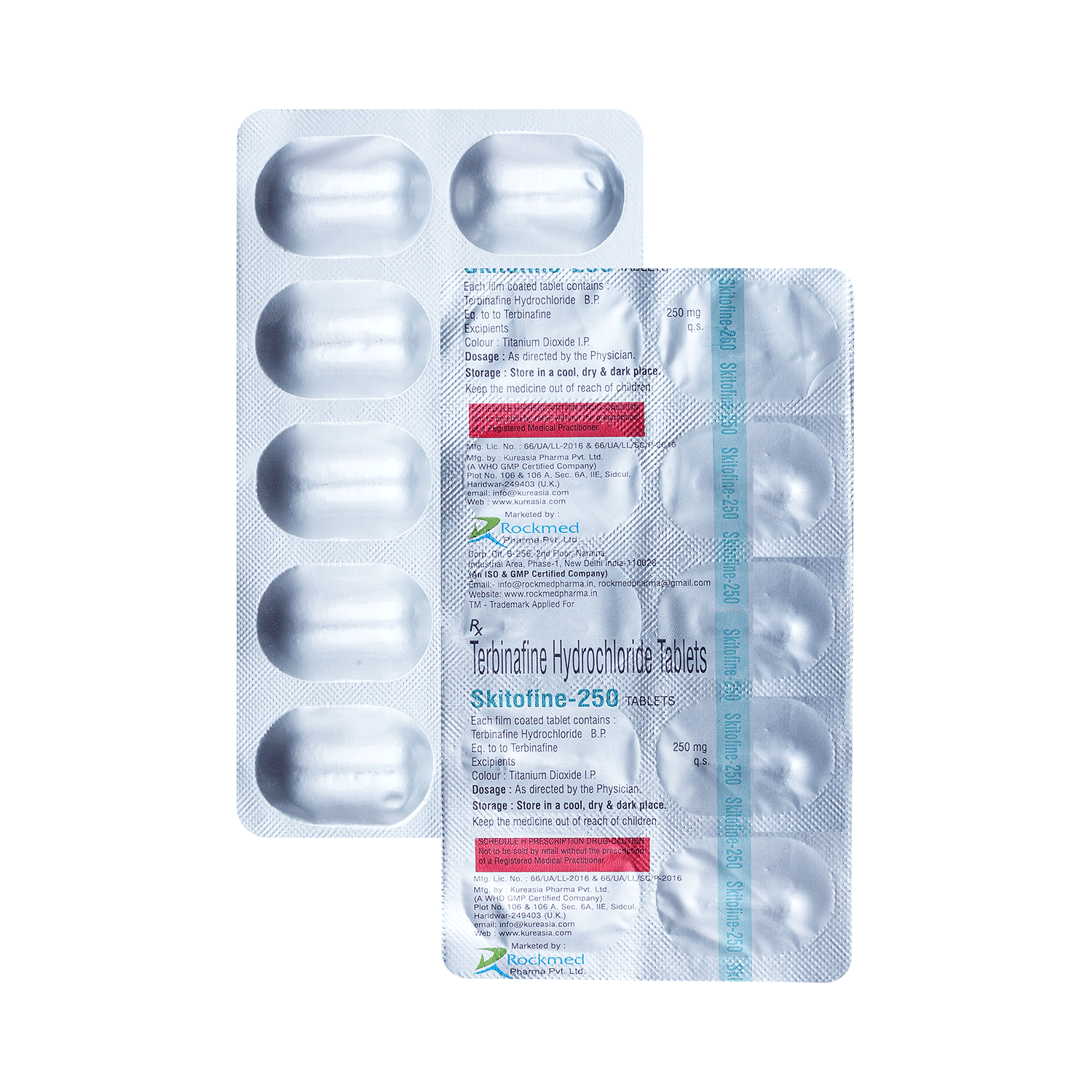
Skitofine 250 mg Tablet
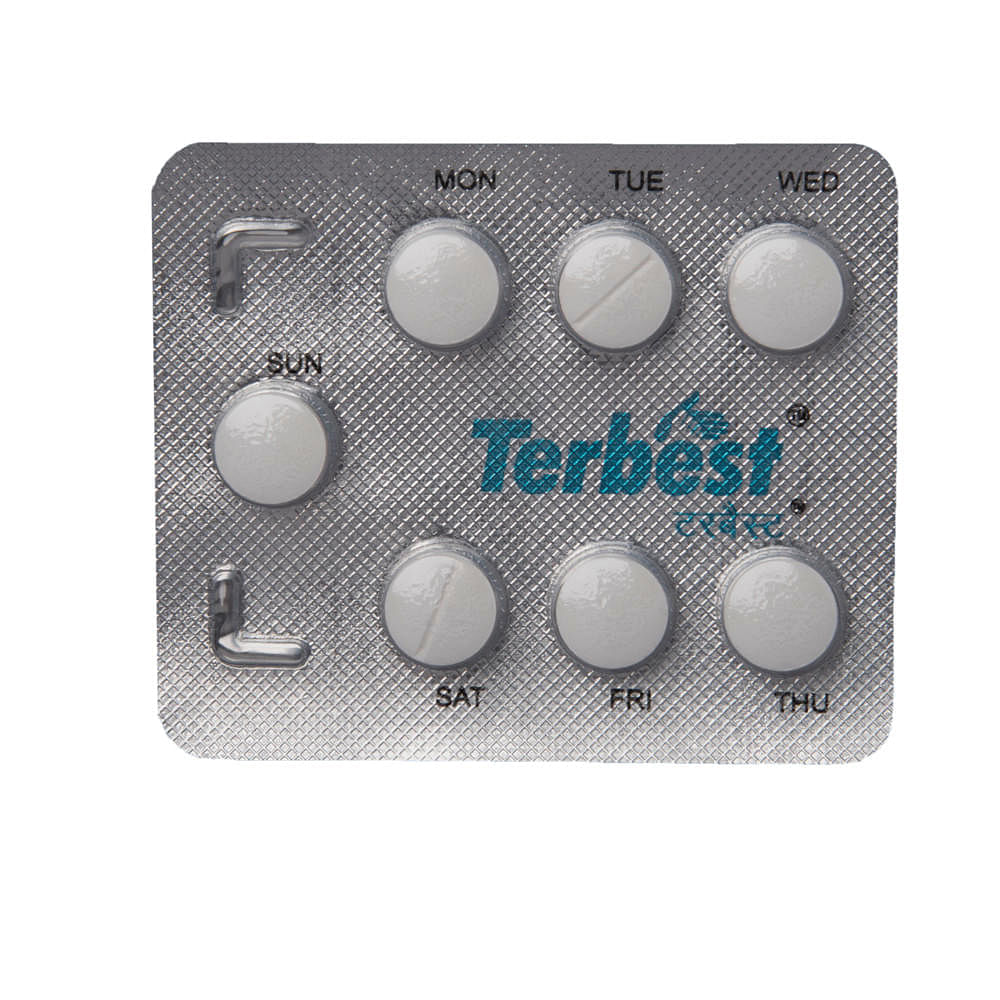
Terbest Tablet
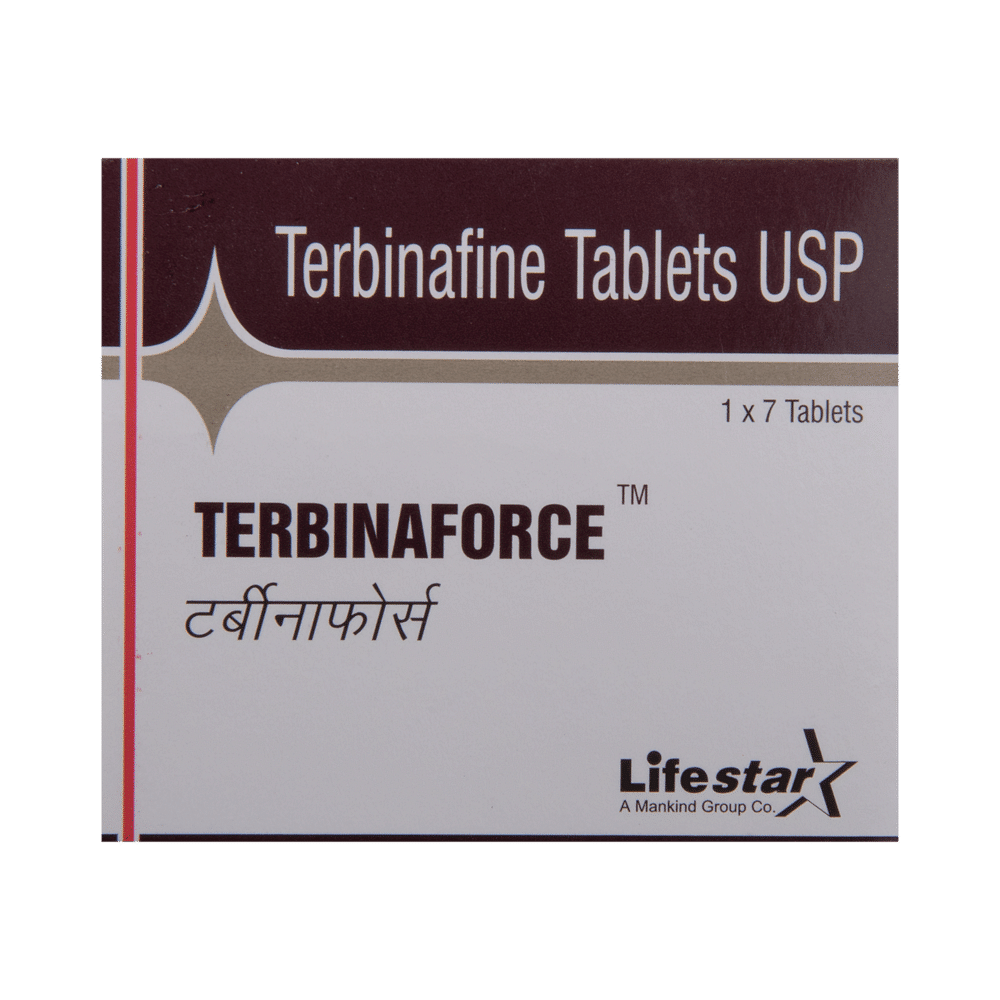
Terbinaforce Tablet
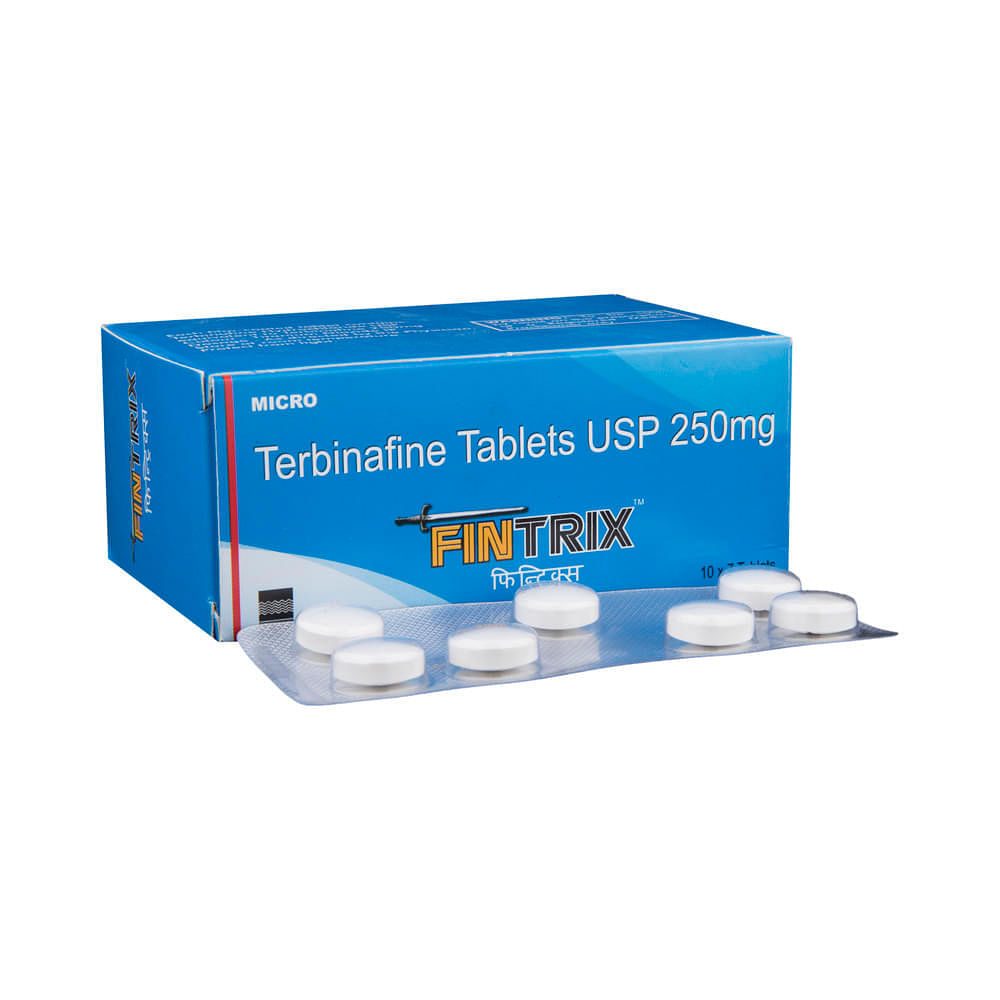
Fintrix Tablet
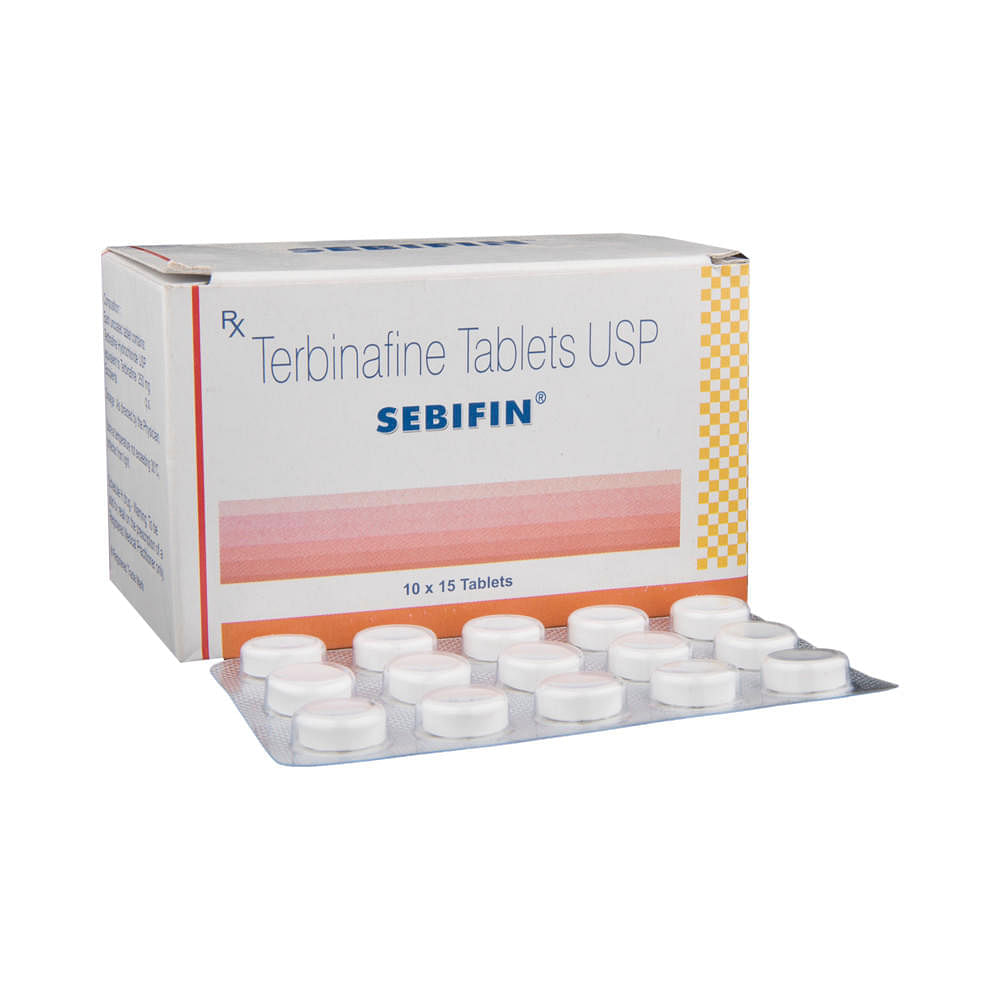
Sebifin Tablet

Terbicip 250 Tablet

Terbrux 250mg Tablet

Md Fine 250mg Tablet

Tifin 250mg Tablet

Terbifor Tablet
Frequently asked questions
Can Terbiza 250mg Tablet be used by patients with liver cirrhosis?
Oral administration of Terbiza 250mg Tablet is not recommended for patients with chronic or active liver disease. A liver function test can help determine if the liver is functioning adequately before prescribing this medication. This is because the drug undergoes metabolism within the liver, and impaired liver function can lead to elevated drug levels in the bloodstream, resulting in increased side effects and toxicity. It's crucial to inform your physician about any pre-existing liver conditions or existing medications you're taking as these interactions could contribute to liver toxicity. Periodic monitoring (after 4-6 weeks of treatment) of liver function is also advised and dosage adjustments may be necessary.
Does Terbiza 250mg Tablet cause skin reactions?
Sensitivity to Terbiza 250mg Tablet can lead to skin reactions. While these are rare, reports of severe reactions such as Stevens-Johnson syndrome and toxic epidermal necrolysis have been reported with this medication. If you experience any type of skin reaction or rash, immediately discontinue the medication and contact your doctor.
Is Terbiza 250mg Tablet effective?
Terbiza 250mg Tablet is a prescribed medication for fungal infections. It's crucial to use it under the direction of your doctor and not stop taking it prematurely, even if you experience improvement. Early discontinuation can allow the fungus to continue growing, potentially leading to reinfection or worsening of the condition.
How long should I take Terbiza 250mg Tablet for fungal infections?
The standard duration for treatment with Terbiza 250mg Tablet is typically 2-4 weeks for tinea pedis (athlete’s foot), Tinea corporis (ringworm), and Tinea cruris (jock itch). However, the duration may extend to 6 weeks in specific cases. For fungal infections of nails, treatment often spans from 6 to 12 weeks, with nail fungus needing 6 weeks for fingernails and around 12 weeks for toenails. The exact length of therapy is determined by your physician based on the type of infection, its location, and your body's response to treatment.
Can I drink tea or coffee while taking Terbiza 250mg Tablet?
Consumption of caffeinated beverages like tea and coffee should be approached with caution when taking Terbiza 250mg Tablet. The medication reduces caffeine metabolism by about 19% which can lead to increased caffeine levels in the blood, resulting in possible side effects like jitteriness, headache, heart palpitations, and restlessness.


